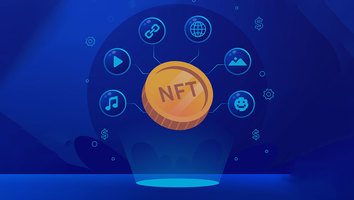Peatio uses the Rails framework to construct a free and open-source crypto-currency exchange. This is a Peatio fork geared toward microservices architecture.
Let’s discuss some of the astonishing things about Peatio development!
Key Features:
Here’s the list of key features of Peatio installation.
- Scalability is simple as you grow.
- Support for numerous wallets is built-in (e.g., deposit, hot, warm, and cold).
- Any Blockchains, currencies, and ERC tokens can be plugged into the API.
- Built-in Management API – high-privilege server-to-server API.
- RabbitMQ Event API is built-in.
- Websocket API is an application programming interface for websockets.
- Supports high-frequency trading (we recommend OpenFinex™ for enterprise-grade trading).
- Supports trading bots and market-making AI assistance (we recommend ArkeBot for enterprise-grade market-making).
- API endpoint for payment gateways.
- Highly configurable and customizable.
- Bank-standard security out-of-the-box.
Benefits of Peatio Exchange
Here’s the list of benefits of Peatio exchange development services:
- Global transaction support
Regular crypto exchanges are not permitted to operate in some jurisdictions. As a result, crypto aficionados in these nations are unable to deal in the cryptocurrency. These traders, on the other hand, can always use a peer-to-peer (P2P) exchange, which allows for quick, global, efficient, and cost-effective transactions.
- Lower transaction fees
Intermediaries such as asset custodians, who must be compensated, participate in centralised exchanges. Apart from that, these exchanges require personnel to run them. All of this adds up to the exchange's operating costs. As a result, the exchange user is responsible for covering these costs through transaction fees. Peatio exchange development, on the other hand, eliminates the need for a third party, allowing traders to be automatically matched. As a result, the transaction execution costs are kept to a bare minimum. As a result, customers of P2P exchanges pay lower costs than users of traditional exchanges.
- Better Security
To perform a trade on a traditional centralised exchange, a trader must hand over their assets to the exchange. As a result, the exchange has complete control over the security of the user's funds. Unfortunately, leading centralised exchanges are occasionally hacked and user funds are lost.
Peatio development, on the other hand, does not hold the funds of their users. This is due to the fact that they only link traders who are not obligated to deposit their assets to the exchange. The traders have full control over their funds. As a result, the funds' security is solely dependent on the users.
- Fraud Prevention
A peer-to-peer (P2P) approach is a fairly open configuration. As a result, platform users may find it difficult to trust one another. P2P exchanges incorporate methods such as reputation management, mandatory deposits, and face-to-face meetings to overcome this difficulty and prevent fraud.
Traders can use a reputation management system to discover a reliable buyer or vendor. The mandatory deposit approach, on the other hand, requires both parties to deposit a specified amount of crypto money. This mandatory fund is released if the trade goes smoothly. Otherwise, it is used to reimburse a trader who has suffered a loss as a result of a bad trade.
Requirements
Here are the requirements for Peatio installation;
- Linux / Mac OSX
- Git 1.7.10+
- Redis 2.0+
- MySQL
- Ruby 2.2.7
- Rails 4.0+
- RabbitMQS



